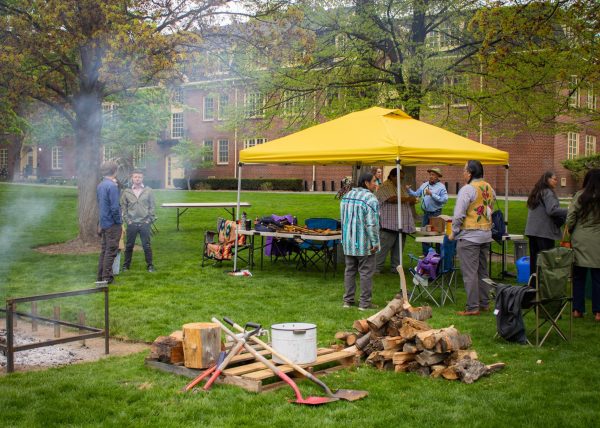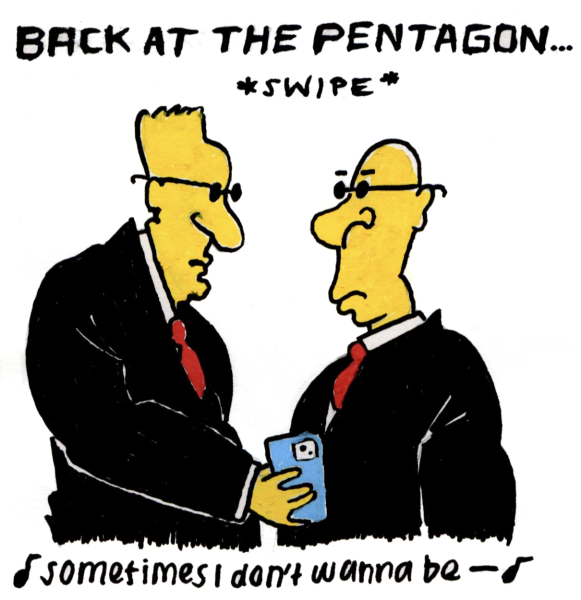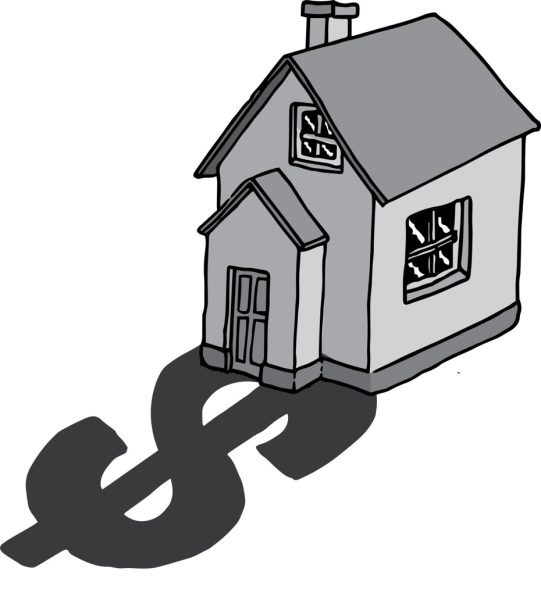Jostling at Whitman
October 1, 2017
What is the ‘jostle,’ you may ask? I will hence define the ‘jostle’ as: competition and exclusivity within a realm of little to no importance, by which members of the in-group struggle for dominance within their narrow realm. Examples prominently include, but are not limited to: shopping at used or vintage stores with the intent of telling people you have done so, in order to inform some sense of aesthetic superiority over those lower, more ignorant life forms. The jostlers want others to know, “Wow, they really do shop at Goodwill,” while also implying they are on every level ‘better’ for having done so. While they may never explicitly say this, it will be felt under no uncertain terms in the set of their brows, and their self-satisfied calm when explaining their own fashion choices.
The Jostlers will often surround themselves with other like-minded members of their realm. Without the cohorts and competition, there could be no necessary exclusion of those who do not participate in such schemes. After all, the jostlers are participating in a sort of virtue cartel, in which they themselves determine the virtue to be sought after. It can be anything: ranging from grunting more loudly in the climbing gym while physically exerting oneself, or even something as mundane as bringing an uncovered, rustic mug to class, thus eschewing the traditional thermos–as if to say, “I just walked out of my house without thinking about it, this mug is part of me.” Yet surely, this must be an aesthetic choice, as it begs the question: how did they get from their house to class without spilling the contents of their mug? Imagine walking upstairs this way. A more refined taste is surely the answer, or maybe something with a lid.
Some may attack this article as both frivolous and unnecessarily specific. To such criticisms, I wish to re-direct the reader towards the definition of the ‘jostle.’ My issue with ‘jostling’ in all of its forms is two-pronged: firstly, that those who are participating in such intense performative aesthetics are often-times unaware of their behavior, and secondly, that they are often times ignoring the significance of their actions in favor of how they might appear to their peers. Jostling happens within groups that care about the aesthetic of Goodwill clothing or the aesthetic of a mug, but ultimately what they care about is being seen in a certain way, to the detriment of the realities of life. Someone who shops at Goodwill because they ‘love the aesthetic,’ is, at its worst, glorifying the aesthetic of the working class while asserting their own financial freedom by signaling that such a choice is ‘aesthetic’ for them, rather than being forced to do so as a product of their circumstances. There’s nothing wrong with loving aesthetics, I only ask that those who ‘jostle’ be aware of what they are doing as they contemplate the purchase of a ‘vintage’ top.









Diana Badger • Oct 11, 2017 at 5:05 pm
I get the sentiment expressed, but I hope we don’t throw out the baby with the bath water. There IS some virtue in shopping at Good Will, which is the concept of reuse rather than engaging in consumerist purchase of new items. It does set a good standard, if it becomes an ‘in thing’ to buy used and be proud of it! So if you sense people are only doing it for the aesthetic, maybe you shouldn’t snub them totally because they are at least engaging in a pro-environment trend, however trendy!